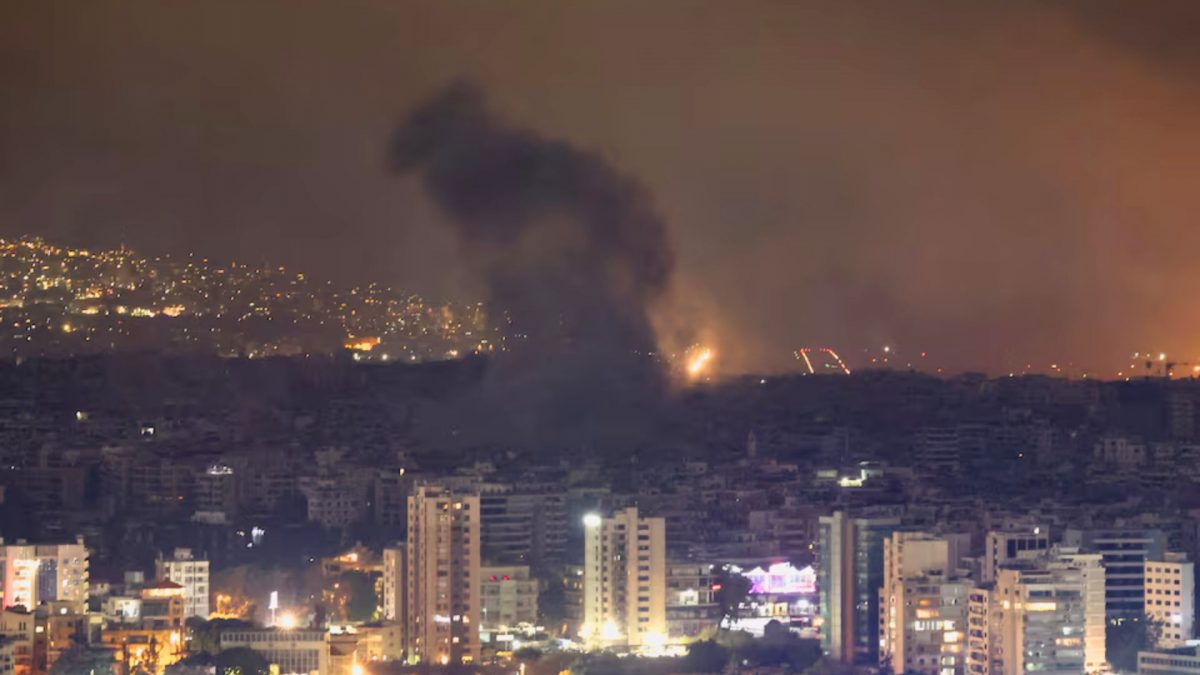As Israeli Prime Minister Benjamin Netanyahu convenes his Cabinet to vote on a proposal for a ceasefire with Lebanon-based Hezbollah, the attention has turned to the United Nations Security Council (UNSC) Resolution 1701.
The ceasefire proposal on the table, crafted by the United States , broadly draws upon the UNSC Resolution 1701 of 2006.
Netanyahu faces the uphill task of convincing the far-right wing of the Cabinet regarding the proposal. The UNSC Resolution 1701 has been unpopular in Israel, which was adopted by the UNSC in 2006 to end the war between Israel and Hezbollah, the terrorist group backed by Iran.
The Times of Israel has reported that the Cabinet meeting is expected to last for up to four hours.
In July 2006, Hezbollah killed eight Israeli soldiers and abducted two in a cross-border attack. While Hezbollah had hoped that the abduction would make way for a negotiated prisoner-swap, it misjudged the Israeli response.
Instead of a prisoner-swap, Israel responded with devastating bombardment followed by a ground invasion of Lebanon to fight Hezbollah. The war went on for more than a month and ended with the UNSC Resolution 1701.
What is UNSC Resolution 1701?
Under the terms of the UNSC Resolution 1701, Israel was to vacate the Lebanese territory captured in the 2006 war and withdraw southward of the ‘Blue Line’ whereas Hezbollah was to vacate southern Lebanon bordering Israel and move northward of the Litani river.
The ‘Blue Line’ is the ceasefire line between Israel and Lebanon and is the de facto border of the two countries.
The UNSC Resolution 1701 also mandated that regular Lebanese military would be deployed in southern Lebanese territories vacated by Hezbollah. Moreover, it mandated that a UN peacekeeping force would be deployed between the ‘Blue Line’ and Litani river to monitor the ceasefire.
Impact Shorts
More ShortsThe UNSC Resolution 1701 also mandated that the Lebanese government should be in control of all Lebanese territories and borders. It also mandated the disarmament of all groups in Lebanon and mandated that only the Lebanese military and UN peacekeepers should bear arms within Lebanon.
Why is UNSC Resolution 1701 criticised?
While the UNSC Resolution 1701 has long been considered the basis for a peaceful settlement between Israel and Lebanon, it has also been criticised within both Israel and Lebanon for being highly ineffective.
The UNSC Resolution 1701 has been a failure as it has never been implemented. While the resolution mandated the withdrawal of Israel southward of the ‘Blue Line’ and the withdrawal of Hezbollah north of Litani river, it was only Israel that withdrew.
In violation of the terms of the UNSC Resolution 1701, Hezbollah neither withdrew northward of Litani river nor surrendered its arms.
Moreover, the UNSC Resolution 1701 remains unimplemented as the Lebanese government is not in control of vast tracts of country, including the southern part of the country when Hezbollah holds sway and has entrenched itself militarily.
Moreover, Hezbollah remains a ‘state within a state’ in Lebanon as it is entrenched socially, politically, economically, and militarily in the country.
For these reasons, critics of the UNSC Resolution 1701 in Israel say it is a non-starter as an inspiration for any ceasefire agreement. In Lebanon, critics have long alleged that the resolution failed to check Israel’s violation of Lebanese airspace.
UNSC Resolution 1701 and Israel-Hezbollah ceasefire
The current proposal for the ceasefire between Israel and Hezbollah broadly draws inspiration from the UNSC Resolution 1701.
Even as Israeli Prime Minister Benjamin Netanyahu is set to be onboard with the ceasefire proposal, there are voices within his government and Likud party that continue to oppose the proposal .
While the specifics of the ceasefire proposal have not been revealed, it has been reported that the plan proposes an initial 60-day troops during which Israeli forces will withdraw from Lebanon and Hezbollah will withdraw from southern Lebanon bordering Israel. After such a withdrawal, Lebanese government forces will take over the area vacated by Hezbollah and the arrangement will be verified by international observers.
Ahead of the Israeli Cabinet’s vote on the matter, The Jerusalem Post reported Agriculture Minister Avi Dichter as saying that if the ceasefire proposal would be based on the UNSC Resolution 1701, he would not support it.
Far-right ministers in Netanyahu’s Cabinet, Itamar Ben-Gvir and Bezalel Smotrich, and a bunch of Likud MPs have come out in opposition of the proposal.
While Ben-Gvir called efforts for ceasefire a “grave mistake” and a “historic missed opportunity” to eliminate Hezbollah, Smotrich said even if a ceasefire is approved, it would be essentially meaningless.
“No agreement. If signed, it will be worth the paper it’s written on. It doesn’t matter. What matters is that we’ve dismantled them, and we’ll continue dismantling them,” said Smotrich.


)

)
)
)
)
)
)
)
)



